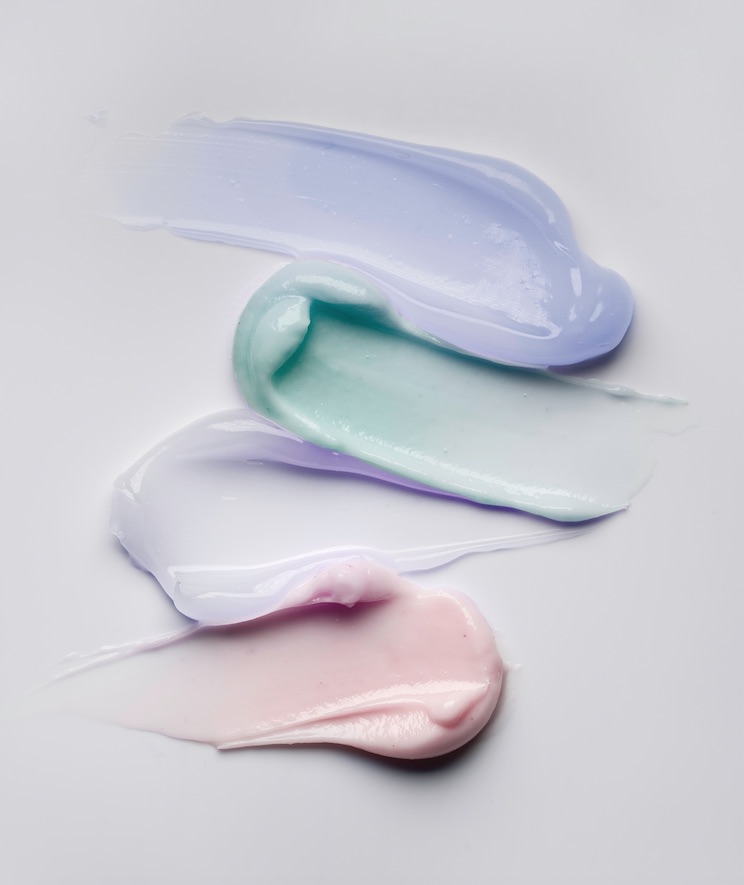What vitamin E does in skincare and how to use it

The fat-soluble antioxidant vitamin E is an important ingredient in beauty products, helping to protect skin from damaging free radicals and environmental stressors. We give the lowdown on this skincare hero.
"Vitamin E is an antioxidant in topical skincare. It defends against the damaging effects of harmful molecules known as free radicals," says Rachel Whiffen, senior manager of global digital education and training at Elemis.
Free radicals are naturally occurring and are more prevalent with age as the number of antioxidants produced by our bodies depletes, "yet, lifestyle factors such as air pollution, tobacco smoke, stress, and excessive sun exposure will also generate the production of free radicals," adds Whiffen.
Antioxidants like vitamin E are known to neutralise free radicals, preventing them from going on to damage further cells, "restoring harmony within the skin and ensuring key functions such as collagen production is maintained," she adds.
Don't miss our other vitamin guides: the truth about vitamin A skincare and the lowdown on the benefits of vitamin C skincare.
Why the hype around vitamin E?
Vitamin E is an easily absorbed, fat-soluble vitamin and nutrient with potent antioxidant actions that helps neutralise free radicals, which is why it is commonly used, and praised, for its ability to treat inflammatory skin conditions.
“It is usually sourced from within our diet as it is a key component of the immune system, helping to strengthen the body’s natural defence against illness and infection, as well as helping to maintain healthy skin and eyes,” explains Whiffen.
However, in topical skincare, vitamin E is primarily used “to defend against pollution and other environmental stressors that would otherwise weaken and cause stress to the skin, causing unwanted changes such as premature ageing,” she adds.
How does vitamin E work?
This powerhouse ingredient should not be underestimated because if offers a wide range of benefits. “As a natural anti-inflammatory, vitamin E soothes, moisturises and nurtures irritated skin, strengthening the barrier function to leave it soft and supple,” says Matt Taylor, brand and education manager at Eve Taylor London.
“It also defends the skin from premature ageing by neutralising free radicals – destructive molecules created by pollution, ultraviolet light and smoking."
In essence, it works really hard to restore harmony within the skin, ensuring key functions such as collagen production are maintained.
It nourishes the lipid bi-layers and imparts its nutrients and lipids to nurture the stratum corneum and add any essential moisture.

Is vitamin E suitable for all skin types?
“The versatility of vitamin E means it is beneficial for most skin types. Those with dry, dehydrated, and mature skin all benefit well,” says Taylor.
“However, those clients with oilier, congested or breakoutprone skin may find it too rich, and in turn, it has the potential to clog pores and exacerbate breakout activity.”
What are the different forms of vitamin E?
Vitamin E is a group of eight fat-soluble compounds made from tocopherols and tocotrienols.
“Vitamin E can be derived synthetically, allowing it to be precisely replicated time after time for a consistent, predictable and measurable yield for commercial viability; it can also be naturally derived from various sources such as seeds and nuts,” explains Taylor.
For example, wheatgerm oil is an abundant source of it, producing twice as much vitamin E as any other cold pressed oil. Yet, the forms most often found in skincare are known as tocopheryl acetate (ATA) and tocopherol, says Whiffen, and this is because they prevent damage caused to the skin.
“Free radicals try to damage skin proteins and cell membranes and, therefore, vitamin E plays an important part in protecting these components in our skin,” she adds.
Why does vitamin E work so well with vitamin C in skincare?
Vitamin E is a team player in the quest for great skin. It’s a real ally in the fight against skindamaging free radicals caused by modern living, which is why it works so well with antioxidant vitamin C.
“Vitamins E and C work well together because they have different compositions. Vitamin E is oil-soluble and vitamin C is traditionally water-soluble, meaning that combined they treat different areas of the skin and protect both the oil and water parts of the cell,” says Maddie Wright, manager of global digital education and training at Elemis.
“When combined, they can improve the appearance of uneven skin tone, brighten a dull complexion, and strengthen the skin’s defences against the impact of environmental stress.”
Introduce your clients to vitamin E in the form of a either a daily serum, moisturiser, or cleanser. “Some clients may like to try using vitamin E in a moisturiser to begin with as serums are often more concentrated,” she adds.
Do you use vitamin E skincare on your clients? Tell us about your experiences below.

![[Updated] How to make it as a massage therapist](https://d3sc42dkmius1e.cloudfront.net/Upload/669/CMS/News/Photos/5ad8f23b-2b7.jpg)
